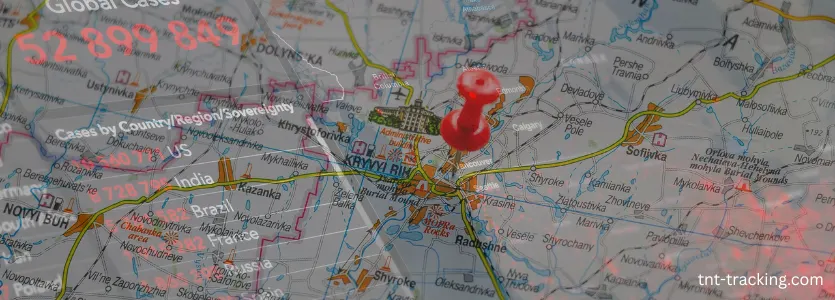Security of TNT Tracking Information
TNT Express, a global leader in logistics and a subsidiary of FedEx, handles millions of shipments monthly across over 200 countries. Its tracking system, accessible through the TNT website, mobile app, and third-party platforms, allows customers to monitor their parcels in real time.
However, the security of TNT’s tracking information is a critical concern, as it involves sensitive data such as shipment numbers, delivery addresses, and recipient details. This article explores the measures TNT employs to protect tracking information, potential vulnerabilities, and best practices for users to ensure their data remains secure.

Overview of TNT’s Tracking System
Security Measures for TNT Tracking Information
TNT implements several security protocols to safeguard tracking information, aligning with industry standards and regulatory requirements. Below are the key measures:

Data Encryption
TNT uses HTTPS with Secure Socket Layer (SSL) encryption to protect data transmitted over the internet. This ensures that tracking information, including shipment numbers and delivery details, is encrypted during online interactions, reducing the risk of interception by unauthorized parties.
Restricted Access to Personal Information
TNT’s tracking system is designed to conceal sensitive personal information. When a tracking number is entered, the system displays only basic shipment details, such as status and location, without exposing recipient names or full addresses. This minimizes the risk of data exposure, especially since tracking numbers are reused.
Security Standards and Certifications
TNT adheres to stringent security standards, including the Transported Asset Protection Association (TAPA) ‘C’ grading, with over 100 hubs and depots globally certified at the higher TAPA ‘A’ level. These standards cover vehicle security, access control, CCTV, and employee training. Additionally, TNT holds certifications like the US Customs-Trade Partnership Against Terrorism (C-TPAT) and Authorized Economic Operator (AEO) status in EU member states, ensuring compliance with global security regulations.
Internal Security Programs
TNT maintains a global security team led by the Global Customs and Security Director, who reports to the Global Network Operations Managing Director. This team develops security strategies, conducts employee and subcontractor screenings, and performs route risk assessments to mitigate risks. In high-risk areas, TNT employs additional measures like GPS tracking, security escorts, and enhanced site controls.
Fraud Prevention
TNT actively combats internet fraud, such as phishing scams that misuse tracking numbers. The company collaborates with major Internet Service Providers (ISPs) like Microsoft and Yahoo to shut down fraudulent websites and email addresses. TNT’s global security department has successfully closed over 1,500 scam websites and advises customers to verify suspicious communications through official channels.
Customer Authentication for Sensitive Actions
For actions like rearranging deliveries or accessing PoD signatures, TNT requires customers to provide the shipment number and delivery address, ensuring only authorized individuals can access or modify tracking details.
Potential Vulnerabilities
Reused Tracking Numbers
The reuse of tracking numbers every three to four weeks can lead to confusion, as multiple shipments may share the same number. While TNT mitigates this by filtering results based on shipment details, there’s a small risk of exposing unrelated shipment information if the system fails to distinguish correctly.
System Glitches
Occasional technical issues can delay tracking updates, leaving customers without real-time information. While not a direct security breach, these glitches can erode trust and create opportunities for scammers to exploit confused customers.
Phishing and Social Engineering
Scammers may use fake tracking notifications to trick customers into revealing personal information. TNT warns that a tracking number alone does not prove a shipment’s legitimacy and advises customers to contact customer service to verify suspicious communications.
Third-Party Tracking Platforms
Many customers use third-party platforms like 17TRACK, Ship24, or Parcel Monitor to track TNT shipments. While convenient, these platforms introduce additional risks, as their security practices may not align with TNT’s standards. Data shared with third parties could be vulnerable to breaches if their systems are compromised.
Human Error
Customers or employees may inadvertently expose tracking information by sharing numbers publicly or failing to follow security protocols. For example, posting a tracking number on social media could allow unauthorized access to shipment details.
Best Practices for Customers
TNT’s Customer Support and Incident Response
TNT provides 24/7 customer support to address tracking-related issues, including security concerns. Customers can reach out via phone, email, or live chat, with contact details available on the TNT website. The customer service team is trained to handle queries about tracking statuses, delivery issues, and potential fraud.
In cases of internet fraud, TNT’s global security department collaborates with law enforcement and ISPs to investigate and mitigate threats. The company has a track record of shutting down fraudulent websites and assisting customers in reporting scams to authorities.
Conclusion
TNT’s tracking system is designed with robust security measures, including encryption, restricted data access, and compliance with global standards like TAPA and C-TPAT. While vulnerabilities like reused tracking numbers and phishing risks exist, TNT mitigates these through proactive fraud prevention and customer education. By using official TNT channels, protecting tracking numbers, and staying vigilant, customers can further enhance the security of their tracking information.